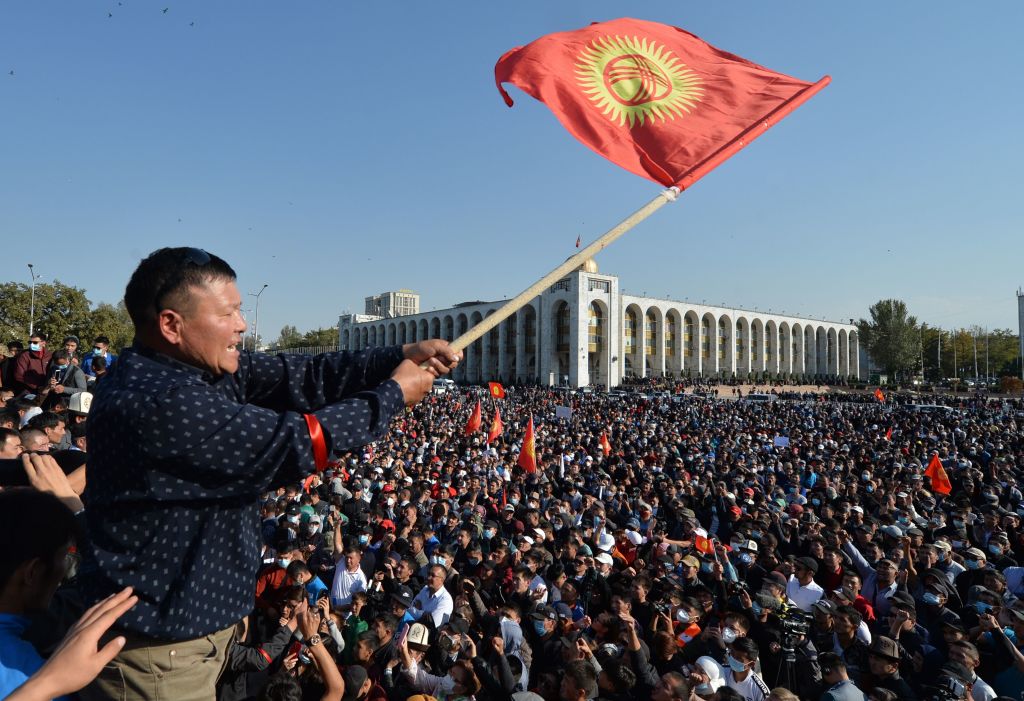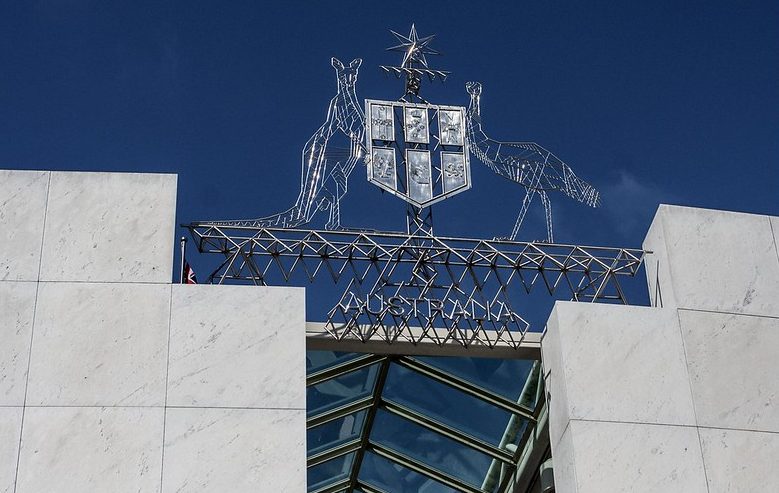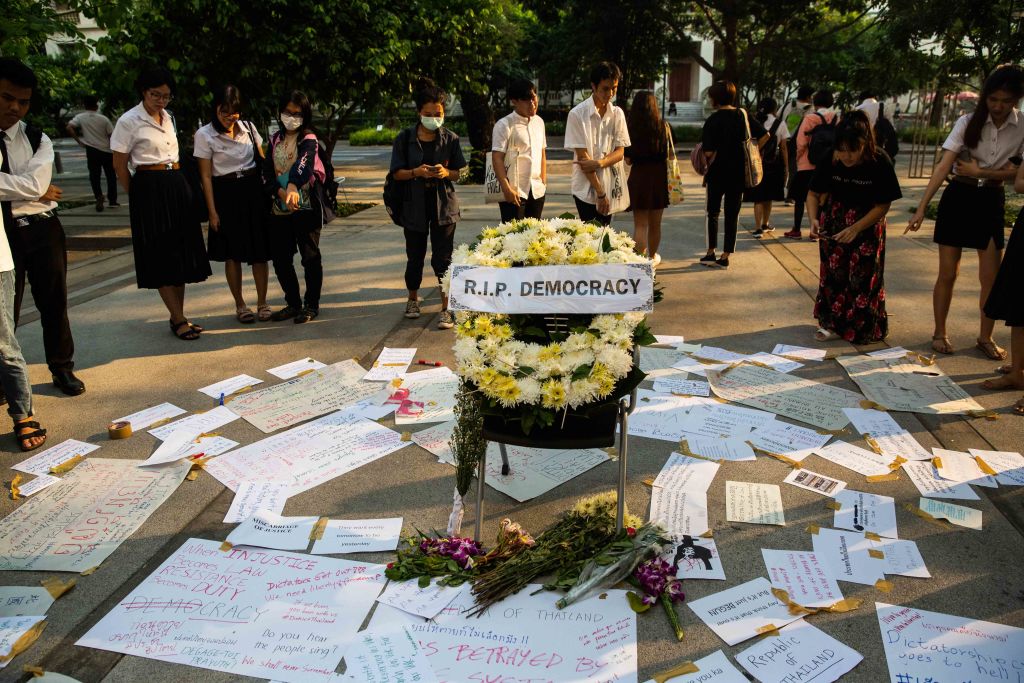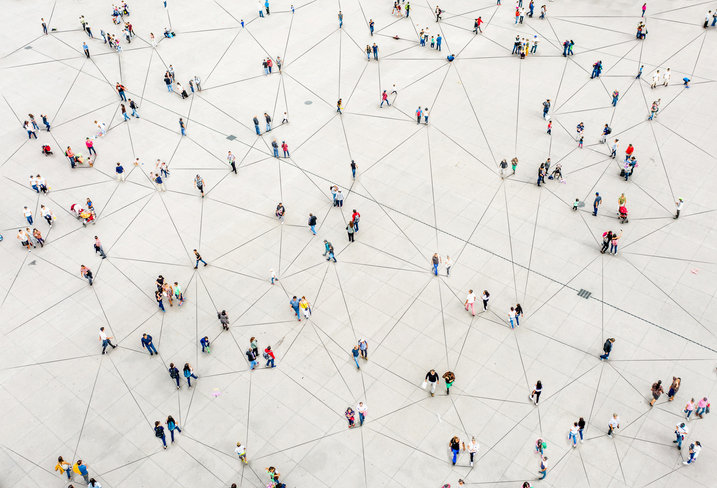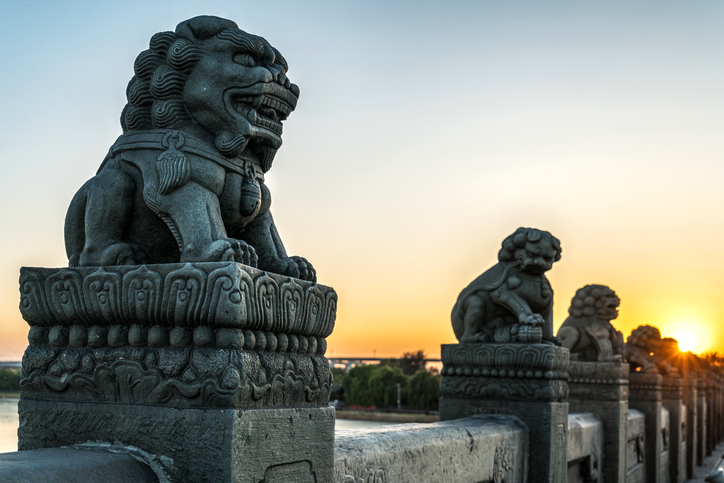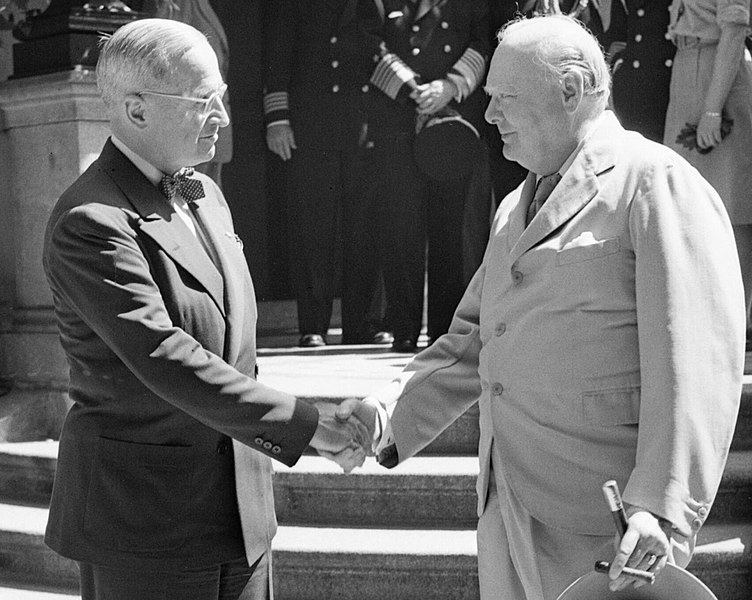
During most of my political lifetime, certainly during the second half of the 20th century, we lived in a world that largely reflected the terrible lessons learnt in the previous years of the century, when xenophobic nationalism wrought political and economic havoc and when human rights and civil liberties were trampled under foot.
We rebuilt a better world after the 1940s. It was far from perfect, and it is difficult to argue that it was safer than today’s world. For much of the time an uneasy peace was kept by the threat of Armageddon. Should Washington or Moscow miscalculate, the nuclear bunker dug out for the British cabinet (dress code, informal) came with altar cloths and crucifixes. My first term at university coincided with the Cuban missile crisis.
By and large, after 1945 most of the world became safer and more prosperous under generous American leadership, which spread welfare capitalism and a belief in and commitment to the universality of human rights.
There are few examples in history of a victorious nation behaving with the visionary generosity of the United States, which was at the heart of the institutional, political, economic and cultural efforts to create a better and more stable world. Moreover, Washington usually accepted that the rules and behaviour agreed internationally should apply to America as well as to other countries.
At the heart of this approach were several assumptions. First, each nation-state, it was believed, did well if others too were doing well. America’s interest was in helping others, not holding them back. This message needed to be understood by the voters who elected America’s leaders.
Harry Truman is well known for having on his desk a sign that read ‘The buck stops here’. Less well known is the fact that the reverse of that sign, which faced him every day, said, ‘I’m from Missouri’. He could not forget that he needed the understanding of those he represented in order to pursue the policies at home and abroad which underlined America’s hard and soft power.
America became even greater by helping others to be greater. You could sneer, as many Europeans did, at what was often seen as American naivety. Think of Graham Greene, for example, or Simone de Beauvoir. Sometimes the naivety came with a cost. But the comprehension (initially in the old democracies) that almost every serious problem that nation-states faced could only be dealt with through cooperation with others was generally accepted and provided the template for international action.
We saw the creation of global and regional political and economic institutions. In Europe the Cold War ended with no shots fired. The European Union was built from the moral, political and economic rubble of the 1940s. Pluralism and democracy spread so fast that one American political scientist opined after the fall of the Berlin Wall that history was over, at least in the sense that there was no longer any political argument about the best way forward. Open societies, politically and economically, had won all the trophies. Victores Ludorum.
Countries we used to call ‘Third World’, at one time pressing for a new international economic order, based on socialism and cartelisation of commodities, joined the global economy and started a different new economic order, based on selling to richer countries the goods they wanted at cheaper prices than the prices at which the rich could make the same products themselves. Vietnam, for example, was transformed from charnel house to thriving economy. And at the heart of it all, a story told in one statistic, China increased its exports to America by 1,600% in 15 years.
What went wrong?
First, ideology ran away with common sense. Herb Stein’s first law of economics—namely, ‘Things that can’t go on forever, don’t’—was overlooked. Deregulatory fervour in America, combined with rising household and national debt (in part the result of growing inequality), roiled the global economy.
Globalisation—making goods in the places that could make them cheaper and better—began to be seen as enemy rather than friend, a process aggravated by bad political leadership in some Western democracies especially America, and by the aggressively unfair policies pursued by China. The great crash of 2008 was followed by a hunt for villains, as too many political parties in democracies found it easier to appeal to the lowest common denominator of political prejudice rather than try to encourage more balanced public perceptions of the best way forward.
The slogan ‘Make America Great Again’ was echoed elsewhere. ‘Make China, India, Turkey, Britain and so on Great Again’. Nationalism flourished as populism rejected the notion that complex problems needed more than slogans to solve them.
Social media helped to entrench primitive ideas of identity and to assault any notion of expertise that challenged crude dogma. If something was asserted—however correctly—with which you did not agree, it was branded ‘fake news’. In Britain we invented a phenomenon during our Brexit referendum campaign called ‘Project Fear’ as a portmanteau assault on any suggestion that actions have consequences—consequences which can be very damaging if the actions are equivalently stupid.
And with America convulsed by its own brand of ignorant nativism—mercantilist economics combined with allegedly moral isolationism—attempts to reconstruct a consensus for international combinations to solve problems had great difficulty achieving lift-off.
The first task of democratic leadership today is to teach our electorates once again that we require to work with others in order to deal with most of the difficult issues we face—from infectious diseases to illegal arms trade, from drug smuggling to the proliferation of nuclear weapons, from mass migration to the assaults on our environment. Since bread-and-butter issues tend to form the most decisive agenda in domestic politics, a great deal of the focus today is on trade and its consequences for jobs and inflation. Here, the longest shadow over our future prospects is thrown by America and China.
The General Agreement on Tariffs and Trade which commenced in 1948 was one of the major post-war economic initiatives and was developed into the World Trade Organization in 1995. These organisations have boosted trade substantially. Without them it is reckoned that countries would on average face increases in tariffs on their exports of over 30%.
Most preferential trade agreements draw on the WTO. Members have to sign up to the WTO’s terms, including a rigorous trade disputes arbitration, which in a sense reflects a pooling of some degree of sovereignty in return for a greater amount of trade and a thickening of political ties with other countries. The most difficult and intense WTO negotiations in which I was involved when a European commissioner were those involving China. There is little question that worries about the Chinese economy stalling in the early 2000s were overcome by the boosts to the economy given by urbanisation and by WTO access.
It is, of course, China’s role in world trade which is—alongside the Trump administration’s reaction to it—at the heart of our present global economic concerns.
As I said earlier, China’s trade with the US has increased exponentially, and indeed it has grown rapidly with others too. China has been your largest trade partner for over a decade, and while the US has a trade surplus of about A$18 billion with you, your own surplus with China is about twice as big. The EU has a large expanding trade deficit with China of about €62 billion, and there have been periods when China’s trade with Europe has been growing much faster than the Chinese economy as a whole.
For President Trump, the size of America’s trade deficit with China has been a point of massive aggravation, and he has imposed tariffs on Chinese goods entering the United States. But his approach to the issue has been ham-fisted and to some extent counterproductive.
The American complaints are not unique to Washington. Others have the same concerns. The Chinese don’t accept a level playing field in global economic affairs. They apply different criteria to investment in China than they expect when they invest in other countries.
Entry to the Chinese market is limited until their own domestic companies have secured a dominant position. Joint ventures are used to pilfer intellectual capital. Cyber theft steals industrial secrets, so that in America I have heard some business leaders say that there are two sorts of companies: those that are being hacked by China, and those that know they are being hacked by China. At the same time, the politicisation of credit in China, and other covert and no-so-covert subsidies, mean that the cost of exports can be kept down and that China’s surpluses (for example, in steel) can flood other markets.
When you read the annual reports of the International Chamber of Commerce in Beijing, you see a remarkably similar picture right across the board. But instead of working with others in a common approach to China, President Trump has been systematically picking arguments with most of those whom the US should regard as allies on this as on other matters. Moreover, the WTO’s ability to resolve disputes is weakened by the Trump administration’s failure to appoint senior judges to the WTO because of ideological questions about the sovereignty implications of dispute settlement.
All this manifests the nativist hostility to working with others to solve problems, but it also shows America’s obsession with what it regards as the systemic competitive threat posed by China to America’s global leadership. This often poisonous relationship lies at the heart of the accelerating collapse of a global rules-based order, policed and orchestrated by trusted institutions.
Like one of those children’s games, you take away one wooden building block and the whole tower comes crashing down. The paradox is that the phenomenon is triggered first by the country, China, which has gained most from its use of the global economic rule book, and second by the country, America, which played the central part in drawing it up.
We will be fortunate not to suffer in due course from the economic effects of this. You do not need to be a card-carrying pessimist to hear distant thunder, and to find increasingly credible predictions of a spreading recession.
The problem goes deeper than this great power stand-off, though the next American presidential election may help to resolve matters if an elected leader emerges from the dogfight who is able to persuade electors once again that America’s greatness lies in working with rather than against like-minded countries.
Democratic countries need to lead the process of re-establishing global order through cooperation. That means patient and relentless pedagogy and brave leadership turning public opinion around on the need for collaboration and honesty in dealing with complexity. The European democracies have been badly burned by populist nativism. That is true in my own country, where for years politicians have tried to humour a mood of resentment and nostalgic delusion—bordering sometimes on xenophobia—instead of taking it head on and fighting it primarily within what is at present the fractured governing party.
What makes this psychodrama all the more curious is that all the evidence shows, as our friends continually remind us, that departure from the EU is hugely against our interests. The decision to apply for membership in the first place was a result of the growing realisation that in the 1950s and 1960s Britain faced the probability of relative economic decline becoming ever deeper.
From 1951 to 1973 the growth figures of OECD countries showed Japan at the top of the table at about 9.5%, the European Common Market countries like France, Germany and Italy at approximately 5% or a little over, and Britain at the bottom with about 2.5%. In 1973 we joined what became the EU and from then until the date of the referendum in 2016 our growth exceeded Germany’s, France’s and Italy’s.
From the introduction of the single market, pushed hard by Margaret Thatcher in 1992, to that same referendum date, Britain’s lead over the others was even greater. The EU was our biggest market. Membership was good for investment as well as for our trade and it did not inhibit our deregulation of Britain’s labour market.
Yet in an act of manifest self-harm, we chose by a small margin to leave the EU and then pursued the negotiations in just about as damaging a way as could have been plotted by our worst enemy. Of course, Britain retains many great strengths and qualities. Life will go on. But it is difficult to see how Brexit will make us better off, or more influential. The reverse looks well-nigh inevitable.
Populist nativism has poisoned the politics elsewhere in Europe; for example, in Hungary, Poland and Italy. Beyond Europe, Brazil and India have followed nativist paths, with results that threaten (in the former in particular) our global environment. Politicians find it easier to offer simple answers to problems, offering voters mutually impossible promises and a return to purportedly simple and exclusive identities.
Take three of the common populist themes.
In richer countries it is easier to criticise globalisation than to explain the economics of comparative advantage and to design the tax and spending policies that would sensibly address its consequences. Social inequity, a growing gap between rich and poor, helps to fuel populism on both the left and the right. The importance of investment in education and reskilling is too often overlooked. The United States spends one-sixth of the average of OECD countries on labour market retraining.
Politicians in too many countries find it easier to denounce immigration and criticise its cultural and economic effects than to explain the benefits it can bring and the complex combination of measures required to manage it sensibly. This is clearly a major source of populism in many countries—from the Mexican border with the US to the sinking boats full of immigrants in the Mediterranean.
In Britain, hostility to the free movement of labour within the European single market was a big factor, dishonestly and ruthlessly exploited, in the Brexit referendum campaign in 2016. A result of ending free movement will be a poorer Britain unable to fill vacancies in many areas including the care professions.
For the whole of Europe, demography and political instability point in one direction. For four centuries Europe has exported people; now it needs to import them. Europe’s native home population falls. Fertility rates decline, hovering around 1.3 in Spain, Italy, Portugal and Poland. People live longer. Fewer economically active citizens have to carry the load for a growing population of the retired.
Meantime, in Africa to the south for example, the fertility rate is far higher than in Europe. It is seven in some sub-Saharan countries where better health care means that people also live longer. The population of Africa will double to 2.3 billion in the first half of the century, and in parts of Africa and West Asia political conflict and state breakdown trigger mass movements of people. Europe needs to respond with a combination of economic, development, security and foreign policies that maximise what Europeans can do together. The task of democratic leadership is to build consent for this sort of approach, not to thump chests and regard drowning in the waters around our coast as an acceptable and principal instrument of immigration control.
Leaders also need to be more honest about the meaning of sovereignty in the 21st century. It is of course true that some institutions have to be created to manage shared sovereignty. That is what happens for example in the European Union, in the UN and in other global and regional cooperative organisations. They need of course to be demonstrably under the control of the member governments that have signed up to them.
Sovereignty can be and is shared not so that voters can lose control over their destiny, but so that the governments they elect can secure the national interest—and that destiny—in politics and economics more effectively. Think of the WTO; think of NATO.
In Europe, and in Britain, some politicians and parts of our media have often behaved as though sovereignty is a chunk of constitutional masonry, which nefarious foreigners seek to pilfer covertly. There is also a tendency, as the late Geoffrey Howe used to argue, to treat sovereignty as though it were much the same as virginity. Here tonight, gone tomorrow. The real questions are whether the international combines of which we are necessarily part are subject to the democratic constraints provided by their members and whether they embrace our real national interest. There are of course trade-offs.
As I have described, we are about to discover in Britain what this really means. I noted we are a medium-sized country which, as we confronted our not entirely bump-free passage from imperial power to our modern state, decided that the best way of preserving and furthering our interests was as a member of the European Union.
Now outside that body, we must make our way between the Asian powers, especially China, the US and Europe itself. When it comes to so many of the things that matter from trade, to financial regulation, to transport issues to data protection, and on and on and on, whose rules will we follow? And how many of the rules can we determine on our own?
Leadership would have consisted in explaining these complexities, not offering pantomime visions of the sort of role we can play in the world once freed from the webs of pesky foreigners.
One area where leadership is surely required is literally existential. Environmental policy tends to bring out the worst in some political leaders when it comes to what works rather than what sounds good. It was always thus.
When the hole in the ozone layer became a perceptible threat in the 1980s and 1990s, a matter I recall of considerable menace in Australia, the world came together and made some tough decisions in the Montreal Protocol to phase out the production and use of ozone-depleting substances like halons and chlorofluorocarbons. I chaired the London conference which secured the agreement with powerful leadership from the US and a hard-won fight to secure the buy-in of China and India. There were costs, but leaders explained why they had to be borne. Today we face a far more difficult challenge for leaders in the growing threat of climate change.
In most parts of my life I am not by nature a catastrophist, though I do have a strong sense that in many areas my children are likely to live thorough more difficult times than I have. But I come close to profound pessimism when I consider the issue of climate change.
The schoolchildren who pioneered the Extinction Rebellion were not taking a cute interest in politics to be welcomed provided it did not disrupt our normal lives. They were calling the rest of us out on what life is likely to be like for them on our small and fragile planet, the ‘Pale Blue Dot’ as we called it after Voyager 1.
We cannot take refuge in the hope that climate change is not yet happening, that new technologies will one day prevent or reverse it without much need for change by the rest of us, or that it is all a mad conspiracy by back-to-nature anti-capitalists. What the great Indian novelist (and anthropologist) Amitav Ghosh calls ‘The Great Derangement’ is not something imagined for their own professional benefit by the global science establishment. Denial or inaction is another great derangement.
Let me advance one simple proposition. Working as I do at a university, I am naturally disposed to believe in the scientific method, and in the relationship between evidence and conclusions. The United Nations Intergovernmental Panel on Climate Change, in its most recent and perhaps conservative report, concluded that if around the world we take all the action on emissions agreed in the Paris agreement in 2016 but implemented nowhere so far, we are likely during this century to suffer about 3.2°C of warming, about three times as much as the world has experienced since industrialisation.
The next full report by the panel falls due in 2022. What will the story be? Another hoax? We ignore at our planetary peril the speed of change, the fact that it is already happening, that more than half of the carbon in the atmosphere is the result of fossil fuels burnt in the last 30 years. Many of us applauded Al Gore’s predictions, but we still accelerated along the road to disaster.
There is a need for transformative leadership on the environment. Everywhere from Washington to Brussels to Riyadh to Beijing to Canberra. If what I was told when holidaying on Lord Howe Island two years ago is true—they are proud of their own coral—half of the Great Barrier Reef is already dead. And how bearable will life be in large parts of Australia if those UN estimates—thought by many (I repeat) to be very conservative—are accurate?
Despair is not much use. There are things we can and must do. They require strong leadership with many policies that some voters will thoroughly dislike—phasing out dirty energy, taxing carbon, taking new approaches to the management of land, changing the global diet, investing more in carbon capture and green energy.
In his admirable book on climate change, the American writer David Wallace-Wells reminds us that when Robert Oppenheimer, the head of the bomb project at Los Alamos, saw the flash of the first nuclear test he recalled a passage from the Bhagavad Gita—‘Now I am become death, destroyer of worlds.’
It is not just nuclear weapons that can destroy worlds. One day the leaders who helped save our planet will be praised—if, that is, we manage to do that; those that chose short-term political benefits over long-term gain will be excoriated.
Naturally, much will depend on what policies are pursued by the United States and China, for reasons in one case of prosperity, in the other of population size and growth. So far as Washington is presently concerned, policy on China is seen almost exclusively through the prism of trade surpluses and exchange rates.
Environment is an example that the ‘art of the deal’ in international policy goes well beyond those things. That brings me to the final area on which I wish to touch—an area that requires sure leadership.
Those of us who live in democratic societies under the rule of law were accustomed for decades after World War II—as I have already argued—to American leadership in promoting the relationship between economic and political freedom.
Sometimes this agenda was pressed with ideological clumsiness. Sometimes we behaved patronisingly as though concerns about human rights and civil liberties were a Western cultural monopoly, not something which even the most vestigial knowledge of 20th century history would bear out. Sometimes, in addition, we preached abroad what we failed to practise at home.
But I have no doubt at all that a regard for human rights and civil liberties should play a part in any democratic government’s foreign and security policies. I sometimes despair of the proposition that some countries will only buy your own country’s goods or accept your investment if you bite your tongue however they behave. They can kill journalists, incarcerate people by the ten or hundred thousand, try to impose their own warped values system on others—nothing can be called out or criticised.
It is shameful behaviour by governments, which claim to march to a different drumbeat, when they purport to think there may be something to be said for that oxymoronic concept, illiberal democracy. Of more immediate and more perilous nature is the idea that we should look the other way or deliver any disagreement as quietly as possible, when we are asked to make way for ‘the China dream’.
It is absurd to equate China—its culture and the remarkable achievements of its people—with the Leninist communist party that runs it at present. It is not a misguided attempt to shut China out of the global economy to criticise and point to some of the terrible things the communist regime does.
It will be a real challenge to democratic leaders to have to deal at least for some time to come with a large and powerful world player which has no regard for human rights or a global rule book. We need to replace cringing with value-based diplomacy.
We cannot and must not keep quiet about what has happened in Xinjiang, about threats to Taiwan, about the throttling of freedom in Hong Kong, about what amounts to hostage taking of foreigners, about Beijing’s bullying of multinational companies to take the correct political line, about the interference in the institutions and practices of open societies, something which has been clearly exposed in one country after another.
As you can imagine I am particularly concerned about what is happening in Hong Kong. The latest problems began with the entirely peaceful protests against legislation to tear down the firewall between the rule of law in Hong Kong and communist law in China.
I do not condone violence by anyone. But it is obvious that both the refusal of the government to talk to the demonstrators and the way the demonstrations have been policed, have dangerously radicalised a minority of the demonstrators.
The government could have ended the violence two or three months ago if it had agreed to establish an independent commission of inquiry into the reasons for the demonstrations and the way they have been handled. Beijing has an armlock on the Hong Kong government. It is refused any room for manoeuvre. So tear gas and prison sentences have replaced politics. It is a piece of authoritarian vandalism of a great city and its way of life.
We will not enjoy a peaceful and prosperous century if the script is written by the politburo of the Chinese Communist Party. I recently saw a banner which was hanging behind the stage in a Chinese venue where an allegedly open debate between communist officials was taking place. It read ‘Read Chairman Xi’s books. Listen to Chairman Xi’s words. Act as Chairman Xi’s good youth.’ Another banner above a Buddhist temple read, ‘Without the Communist Party there will be no Buddha.’
Speaking for myself, I do not think the world needs the clock to be turned back to Mao-think. And, yes, there is Buddhism, Islamic faith and Christianity without the communist party. They will still be shaping and inspiring the world long after the communist party can only be found in the history books.
I guess it will be suggested, not unreasonably, that it is easier to say what should be done rather than to do it—or even to get elected promising to do it. Yet every generation faces a steep climb.
The ascent must have seemed hazardous to FDR, to Churchill, to Harry Truman and to others in the 1940s. We know from this experience the truth of the old Spanish proverb, which the early 20th century poet Antonio Machado made famous in a great poem: ‘Caminante, no hay camino, se hace camino al andar’. ‘Traveller, there is no way. The way is made by walking’.
That is what leaders do. They walk. They walk ahead of us, sometimes into the dangerous unknown. They walk and they make the road for the rest of us to tread following in their footsteps.
